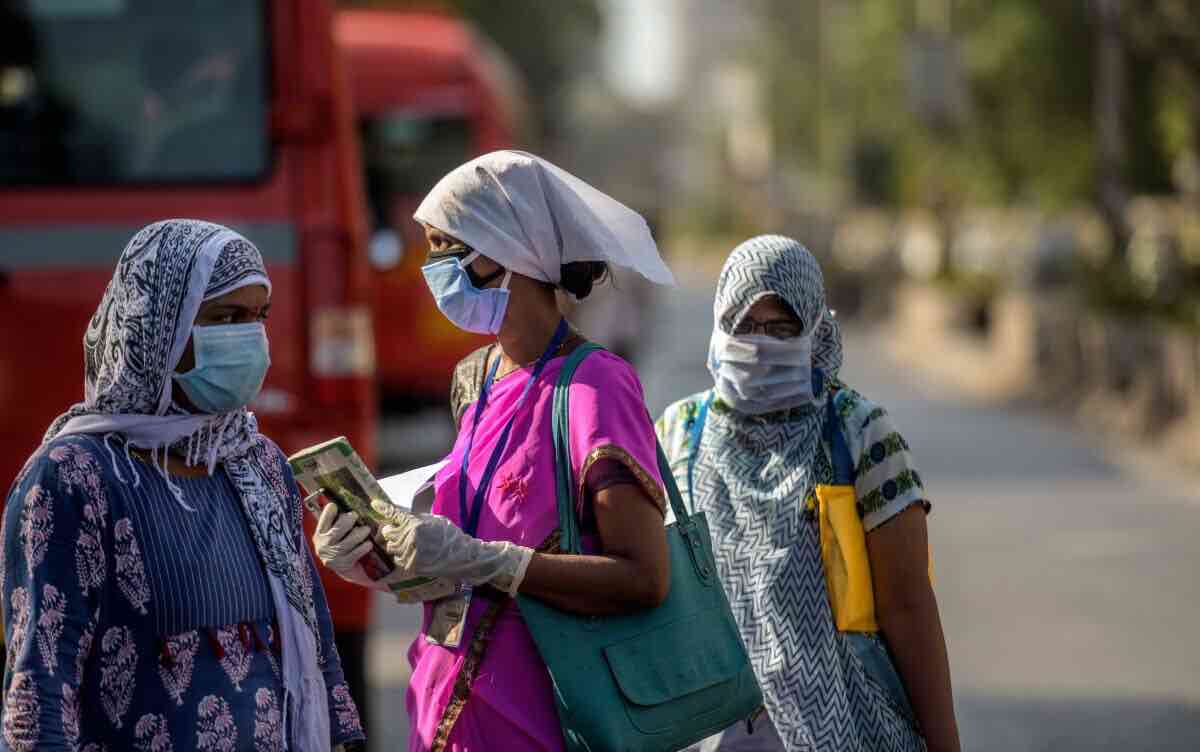COVID-19 is posing new challenges to efforts to promote women’s empowerment, threatening to undo some recent progress in women’s nutrition and health. Meanwhile, the pandemic has sparked widespread interventions by governments and organizations that need a gender focus. A May 21 IFPRI virtual event explored ways to make these responses in agriculture and food security gender-sensitive.
Starting off the discussion, IFPRI Senior Research Fellow Agnes Quisumbing pointed to lessons from previous crises and pandemics as guidance to come up with gender-sensitive COVID-19 responses. “Crises and pandemics are not new and it’s not surprising that when large scale crises happen, they tend to affect the already vulnerable and make it worse for them,” Quisumbing said, citing severe impacts on women during the 2007-2008 food crisis and the HIV/AIDS pandemic.
Developing gender-sensitive policies is complex and there is no one-size-fits all approach, Quisumbing said: “Context matters, because gender is a very context-specific thing. It really varies by culture and society.”
The presenters then outlined gender-specific challenges that different countries face in confronting the pandemic, and potential policy solutions.
In Bangladesh and Uganda, Quisumbing said, women’s assets are less protected than men’s. When health or economic shocks hit, women’s assets are more vulnerable and the first to be liquidated. In order to protect and empower women in such uncertain times, governments should develop gender-sensitive social protection programs and help women rebuild their assets during recovery.
In India, the government’s COVID-19 lockdown led to serious losses for small farmers, reducing some crop yields by more than half. Markets also closed, aggravating farmers’ financial losses. In response, the Self-Employed Women’s Association (SEWA) appealed to national and state governments to declare minimum crisis support for these crops, arrange for local procurement at villages, and give every farmer 2,000 rupees ($26), SEWA Director Reema Nanavaty said.
“To protect food security we must protect the base of agriculture—the small farmers and their produce,” Nanavaty said, calling for the government to establish agriculture recovery funds that safeguard smallholder farms in crises like the COVID-19 pandemic.
In Africa, as elsewhere, the pandemic is disproportionately affecting women. In Kenya, local governments closed open air markets, preventing economically vulnerable female farmers from accessing their main source of agricultural inputs and other productive resources, said Maureen Miruka, Director of Gender, Youth & Livelihoods, Food and Water Systems of CARE USA.
In response, CARE is working to bridge the gender gap in technology use and increase access to hunger safety net programs. “Farmers and especially women must have access to agricultural productive resources and markets,” she said. “I specifically want to talk about inputs, information as a resource to bridge the … physical distance.”
The pandemic has also increased the risks women face from gender-based violence, panelists said, due to men’s stress and prolonged stay-at-home periods. In response, CARE has launched a large operation working with local leaders of 24 countries to ensure their staff and partners have referral information and resources to help women and girls facing domestic violence. Other presenters also called for the expansion of social protection programs, which relieve households’ economic stress and thus help to reduce domestic violence, and ultimately protect women.
Women face various other forms of discrimination and marginalization due to COVID-19. Absent intervention, the number of people living in extreme poverty could increase by more than 140 million. Women would be disproportionately affected as they already make up 60% of hungry people and 76% of displaced people globally.
“We must prioritize the inclusion of gender, but also youth and young women and all marginalized groups,” said Meredith Soule, the Inclusive Development Division Chief of the Bureau for Resilience and Food Security at the U.S. Agency for International Development (USAID).
Policies should focus on sustaining local production and women’s access to seeds and other inputs by keeping markets and small and medium-sized enterprises (SMEs) going, Soule said. Supporting SMEs, she said, requires innovative policies such as extended repayment periods for purchases, lower interest rates, or outright loan forgiveness in some cases.
Effective gender-sensitive COVID-19 responses require understanding, measuring, and monitoring the women’s empowerment component within the response. “To fully understand how women’s and men’s empowerment in agriculture is affected by COVID-19 and how empowerment might help women and men manage COVID-19 and other interlinked shocks, we can use the project-level Women’s Empowerment in Agriculture Index (pro-WEAI),” said Claudia Ringler, Deputy Director of IFPRI’s Environment and Production Technology Division.
The pro-WEAI includes 12 indicators of empowerment in three categories: intrinsic agency (e.g., respect among household members), instrumental agency (e.g., ownership of land and other assets), and collective agency (e.g., group membership). The COVID-19 crisis impacts all 12 indicators, Ringler said. Using tools like the pro-WEAI can help policymakers furthermore identify short, medium, and long-term relief and recovery options that reach, benefit, and empower women and address their context-specific needs.
“I like the use of pro-WEAI to look at empowerment impacts across a wide range of projects,” Quisumbing said, “If we constantly learn and bring evidence together, we’ll come up with better solutions and come out at the end of this crisis stronger.”
Khiem Nguyen is an IFPRI Communications Intern.







